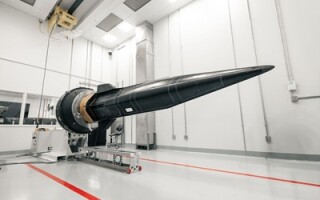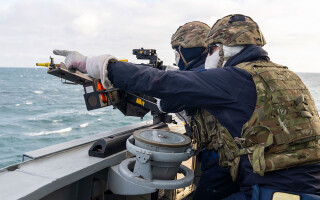DARPA Launch Challenge targets early 2020 launch after three teams complete qualification phase
NewsApril 15, 2019

ARLINGTON, Va. Officials at the Defense Advanced Research Projects Agency (DARPA) announced that three competitors completed the qualification phase for the Agency's Launch Challenge and will attempt to launch to low-Earth orbit from two different U.S. locations.
Teams will receive notice of the first launch site a few weeks prior to launch and exact details on the payload and intended orbit just days before launch. DARPA is targeting both launches for early 2020.
The qualifying competitors are Vector Launch; Virgin Orbit, which entered the competition via its wholly owned subsidiary, VOX Space; and a third company, which has requested anonymity for the first few months of the Challenge.
DARPA awarded a $400,000 prize to each competitor that completed the qualification phase, which included submission and acceptance of a Federal Aviation Administration (FAA) commercial launch license application.
The DARPA Launch Challenge aims to fundamentally shift military space capabilities to enable on-demand, flexible, and responsive launch of small payloads. Teams will receive a $2 million prize for successfully delivering payloads to orbit in the first launch. For a successful second launch, prizes of $10 million, $9 million, and $8 million are available for the top three teams respectively, ranked by factors including mass, time to orbit, and orbit accuracy.
DARPA reviewed competitors’ applications based on a few fundamental elements: technical maturity, a system and approach capable of operating on rapid timescales, and the ability to operate on a launch range with minimal infrastructure. Commercial space developments in the past few years set the stage for the Launch Challenge, including new entrants in the marketplace and small satellites that offer advanced capabilities.
“There’s a real benefit to making use of something already in development in the commercial market, and offering incentives to modify systems and approaches to favor responsiveness and flexibility versus just favoring high cadence for commercial customers,” says Todd Master, the program manager for the DARPA Launch Challenge in DARPA’s Tactical Technology Office. “Today, most military and government launches are national events that are planned years in advance and require large, fixed infrastructure. We want to move to a more risk-accepting philosophy and a much faster pace so we can put assets into space at the speed of warfighter needs.”
Responsive launch refers to timeliness and the ability for a payload to reach orbit within days or weeks of notifying the launch provider. Flexible launch means a competitor can launch from any number of FAA-licensed sites with little more than a concrete pad. Traditionally, FAA licenses are specific to one launch site, one trajectory, and a pre-defined payload. Launch Challenge competitors submitted applications for multiple launch sites, which allows for flexibility to choose or shift launch locations as needed, with DARPA providing payload details to the FAA to complete the application review.





